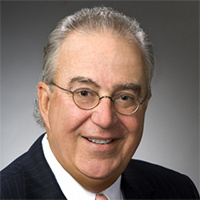 Westerville Trusts Lawyers, Ohio
Westerville Trusts Lawyers, Ohio
Sponsored Law Firm
-
 x
x

Click For More Info:
-
R. Lasko Co. LPA, LLC
1406 W 6th St STE 200, Cleveland, OH 44113» view mapBusiness, Estate, Real Estate, Employment Competent Legal Representation
Let R. Lasko Co. LPA, LLC handle all your legal needs today!
216-574-2602
Sponsored Lawyers
1-2 of 2 matches
Estate, Elder Law, Wills & Probate, Trusts
Larry Huddleston was admitted to the Bar in 1977 and has been an estate planning attorney for more than 20 years. He was in the first class of Certified in Ohio as Specialists in Trust, Probate, and Estate Planning. He has taught estate planning in almost half the states in America to attorneys, accountants, physicians, and many others in groups from 10 to 1,000. He participates in several professional organizations from trade associations to "think tanks." He is rated "10.0 Superb" by AVVO.com and "AV Pre-eminent" by Lawyers.Com/Martindale-Hubbell. He is enthusiastic about his work and intends to keep at it for many years. Larry (or "C L" to his close friends) carries a single-digit golf handicap at Scioto Country Club, is a passable fly fisherman, an active pilot ("Air Gramps" to his grandsons), still enters ski races occasionally and sings bass in the Upper Arlington Lutheran Church choir. He is a graduate of Portsmouth (Ohio) High School, Muskingum College, and Capital University School of Law. Prior to starting his estate planning career, he was a general practice attorney, litigator, financial regulator, expert witness in "banker misbehavior" cases, and a financial institutions merger and acquisitions consultant. He lives in Upper Arlington with Debbie, his patient wife of 40 years. They have two grown daughters and two grandsons.
(more)


 Ronald Lasko Cleveland, OH
Ronald Lasko Cleveland, OH AboutR. Lasko Co. LPA, LLC
AboutR. Lasko Co. LPA, LLC

